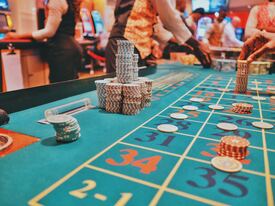Gambler's Fallacy

The description of gambler's fallacy is when a person makes the assumption that what happens other than the average or long term will be corrected short term, visit gamblinglisting.net for gambling tips. The fallacy form is x has happened, x departs from the expectation on what the average is short term and because of this x will end soon. There are 2 ways in which the fallacy happens. In each case a persona makes the assumption that the result will happen because what happened before was different therefor it will change.
The first way the fallacy happens has to do with the probabilities have nothing to do with each other. For example, on a coin flip there is a 50% chance it will be heads or tails. If a person hits heads 5 times in a row they may think that tails is due, which is a gambler's fallacy even though the chance of heads or tails still remains 50% and experience winning in gambling.
The second instance happens when probabilities take place that have nothing to do with each other. For example, let's say a boxer has won 1 of his bouts in a 2-year span. After several bouts the boxer has won 1/2 of them, but has lost 5 straight with 5 remaining. The fallacy is assuming that boxer will win the next 5 fights since they are due. One would not be taking into account the results of one fight can have any influence on the next one. For instance, the fighter may have had an injury in one bout that would decrease his chances of being successful in the next 5 bouts and gamble money online.

You should be aware that not all predictions that may happen are based on false pretenses. If a person has solid evidence for the predictions they make then the outcome they predict is a reasonable one. For example, if a coin is flipped and 9 straight heads come up it would be a reasonable assumption that 9 more in a row will happen and learn card gambling slang. This would not be reasoning that is wrong since the laws of probability state that to be the case. In this instance if a person came to the conclusion that they not will get 9 more heads tosses in a row since the odds of that happening are lower that getting less than 9 heads in a row. The person's reasoning would be solid and their conclusion would then be justified. Because of that it is key to know the laws of probability when knowing if the gambler's fallacy is happening.




